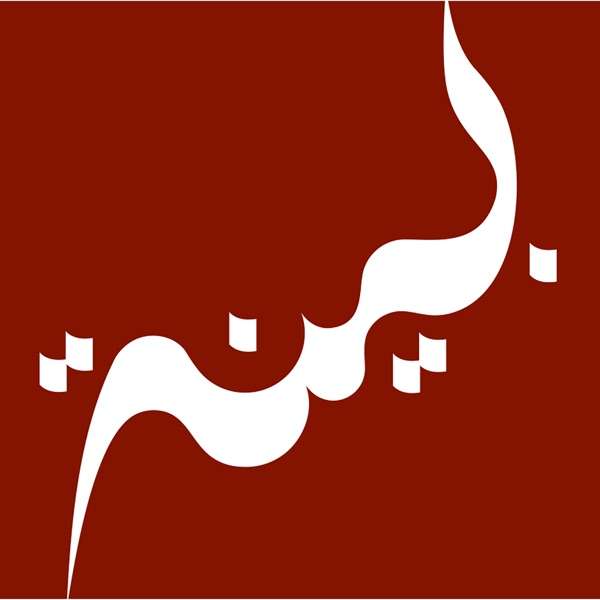Oppression (in Arabic) comes from the word (ظلم). Dhulm means to put something where it does not belong. So, sin (because it places a person’s nature where it should not be, sinful) is a form of oppression; as is associating partners with God (since the norm is to worship God alone).
However, in this article I will address injustice and oppression amongst people: a person transgressing the rights of others through environmental injustice by torture, injury or death, economic injustice by force, plunder or theft or personal injustice by shaming, intimidating or false accusations.
لَا تَظْلِمُونَ وَلَا تُظْلَمُونَ (279)
رَبَّنَا أَخْرِجْنَا مِنْ هَذِهِ الْقَرْيَةِ الظَّالِمِ أَهْلُهَا وَاجْعَل لَنَا مِنْ لَدُنْكَ وَلِيًّا وَاجْعَل لَنَا مِنْ لَدُنْكَ نَصِيرًا (75) }
عَطْفٌ عَلَى اسْمِ اللَّهِ عَزَّ وَجَلَّ، أَيْ وَفِي سَبِيلِ الْمُسْتَضْعَفِينَ، فَإِنَّ خَلَاصَ الْمُسْتَضْعَفِينَ مِنْ سَبِيلِ اللَّهِ.
(وَلِيًّا) أَيْ مَنْ يَسْتَنْقِذُنَا (وَاجْعَلْ لَنا مِنْ لَدُنْكَ نَصِيراً) أَيْ ينصرنا عليهم
وَاجِبٌ عَلَى النَّاسِ أَنْ يَفْدُوا الْأُسَارَى بِجَمِيعِ أَمْوَالِهِمْ
While the harm injustice and oppression cause is apparent to most people, where they differ is the degree win which they oppose it. Consider the pagan Qur’eish: consistently rocked by large numbers of claimants to power, and those claimants continued jockeying for authority, they were left with no central authority to settle their disputes. As a response, they allied (حلف الفضول) in the home of ‘Abdullah bin Jad’an to collectively repel injustice and intervene to protect the oppressed. The Prophet (sa) witnessed that alliance as a young man. After he became a prophet and settled in Medina, he said,
لَقَدْ حَضَرْتُ فِي دَارِ ابْنِ جُدْعَانَ حِلْفًا لَوْ دُعِيتُ إِلَيْهِ الْآنَ لَأَجَبْتُ
“I witnessed in the home of ‘Abdullah bin Jad’an alliance. If I were called to join something similar to in Islam, I would accept.”
Ibn al-Athir mentions that they named it the alliance of virtues, honoring an ancient association of the same name, which took place at a time when the Meccans stood united for justice and the defense of the marginalized. Imam Fayruzabadi wrote that they gave it that name because each of its participants swore that they would not allow another person to use his status (fall) to oppress another person.
Once Islam arrived, it made opposition to oppression as one of its aims. The Prophet (sa) further emphasized that when he said, “Fear committing oppression because oppression will bring oppression In the Hereafter.” The ancient Arabs used to say, “Help you, brother, if he is oppressed.” The Prophet (sa) added, “Help you, brother, if he is oppressed or an oppressor.” He (sa) was asked, “We can help an oppressed person, but how do we help an oppressor?” The Prophet (sa) clarified that saying, “Stop him from his oppression, even if you have to take him by his hand. That is how you help him.”
The early Caliphs of Islam would confront oppression and injustice head-on. However, during the reign of the first four Caliphs injustice was handled largely by reminding people of their responsibility to God. But, as the Muslim empire grew, the number of Muslims swelled, and life became more complicated. Thus, during the reign of Abd al-Malik bin Marwan, he chose a day to listen to the concerns of the oppressed. If their concerns were problematic or required a judgment, he sent them to al-Qadi Abu Idris al-Awaydai.
During the reign of ‘Umar bin ‘Abd al-Aziz after Sulayman bin ‘Abd al-Malik was buried, Caliph ‘Umar sat and had a caller inform the people that anyone mistreated by Sulayman should make their claim. By the time he was done, everything acquired by Sulayman and his family (The Umayyads) unjustly was returned. Such that a friend said to ‘Umar bin ‘Abd al-Aziz, “Do you not fear the wrath of those you’ve punished?” He responded, “Each day that I fear their wrath instead of the wrath of the Hereafter,
Then the Abbasi Caliph came to power, and it continued that tradition with al-Mahdi, then al-Hadi, then Rashid, the al-Mamun until the reign of al-Muhtadi in the year two hundred and fifty-five after the Migration of the Prophet (sa). It did not stop them, but because of volume, the state delegated the responsibility to judges who appointed case workers who could look into the claims each day. Eventually, these cases were taken to the high court where they were settled.
أن الأمير نوح بن (أسد) أحد الولاة على ما وراء النهر ،لما فرض الخراج على أهل سمرقند ،بعث بريدا اليهم بذلك ، فأحضر أمير سمرقند الأئمة والمشايخ وأعيان البلد وقرأ عليهم الكتاب ،فقال الفقيه أبو منصور الماتريدي: قد أديت رسالة الأمير فاردد إليه الجواب وقل له: زدنا ظلما حتى نزيد في دعاء الليل ،ثم تفرقوا،
فلم تذهب إلا أيام حتى وجدوه قتيلا ، وفي بطنه زجَّ رمح مكتوب عليه :
بغى وللبفي سهــــامٌ تنتـــــظر......أتته من أيدي المنـايا والقــدَرَ
سهام أيدي القانتات في السحر......يرمين عن قوس لها الليل وتَرَ
There are numerous examples of leaders who opposed injustice in Islamic history. I would like to mention one noteworthy example here. Once a man came to the court of al-Mansur ibn abi ‘Amir, claiming that one of al-Mansur’s servants had wronged him. He expressed that he had the man subpoenaed by the court, but he refused to come. Al-Mansur turned to his servant, ordering him to go and stand with the man making the claims. There, in front of al-Mansur, the case was heard. After it was over, the Caliph ordered the servant taken away to “The person in charged of the oppressed,” sentenced and removed from his post. That was in Spain, al-Andalus. What is remarkable is that there was a person, “In charge of the affairs of the oppressed.”
During the Caliphate of ‘Abd al-Rahman al-Nasir, the Caliph was looking to purchase some property. He approached al-Qadi Mundhir bin Sa’id al-Buluti, offering to purchase an orphanage attached to al-Buluti’s home. The Qadi noted that the house was in excellent condition and that the Orphans were financially well off (Implying that the price would not be low): “If you offer them a price that will make them happy, I will command the person in charge of their trust to sell it to you.” The Caliph balked, refusing to offer even fair price. Al-Buluti, fearing that the Caliph would try to usurp the property, had it demolished, selling what was left over for an excellent amount: enough to suffice the orphans. When the Caliph inquired why, al-Buluti read the verse,
“Regarding the boat, it belonged to a group of poor sailors, so I decided to damage it because there was a king chasing them who had taken previous boats for plunder.” Qur’an 18-79
Sheikh Hamuda al-Rikli was a scholar from Tunis. During hit time, the government of Tunis was kind to scholars, keeping them close to power, showing them with patronage and doing what every it could to keep them happy. One night, he was sitting the president of Tunis who said, “The kings before us killed scholars, but we honor them and bring them close to power.” Sheikh Hamuda responded, “This reality is clear: The kings of old committed atrocities, the scholars repudiated them, so they killed those scholars. We are quiet because of your patronage so why would you kill us?” The leader became upset, returned to his quarters and ordered all the scholars to return to their homes to save Sheikh Hamuda. As they left, they were certain that Sheikh Hamuda would be punished. After a little while, the leader came out, thanked the sheik for his honesty and gifted him a private car.
Abu Bakr TarTusha advised the leader of the Andalusian army, “Fix the barrier by helping the oppressed.” And Salim bin “Abdullah sent a letter to ‘Umar bin ‘Abd al-Aziz saying, “If you can, come off the last day without any oppressed person making a claim against you.”

 Our TOPPODCAST Picks
Our TOPPODCAST Picks  Stay Connected
Stay Connected







